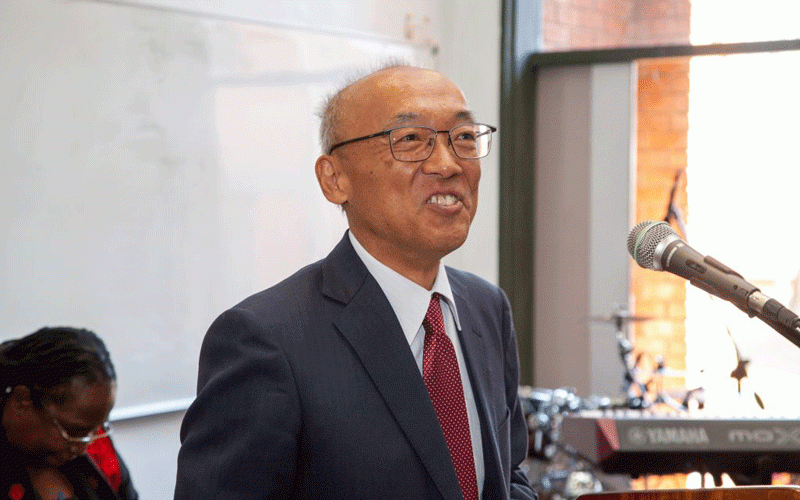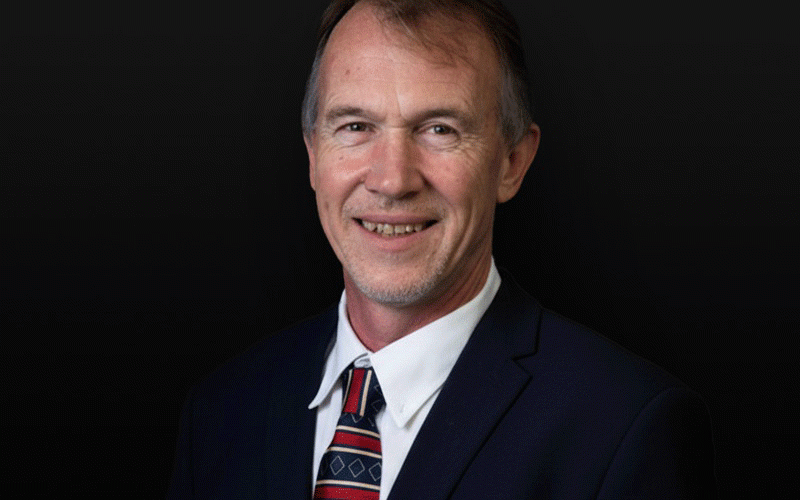
THE Japanese ambassador to Zimbabwe Satoshi Tanaka says the initiation of the carbon credit project in Zimbabwe is unpredictable due to the unstable operating environment in the country.
Carbon credits are tradeable certificates that constitute an offset of one tonne of carbon dioxide or carbon dioxide equivalent from the atmosphere.
Under Statutory Instrument 150 of 2023- Carbon Credits Trading (General) Regulations, 2023, it provides for the control and management of carbon credit trading projects.
The idea of the law was to attract foreign investment through carbon trading as more capital into such sustainable investments are increasingly being availed globally.
Speaking at the Confederation of Zimbabwe Industries (CZI) 2023 three-day annual congress last week, Tanaka said it was very difficult for investors to invest in Zimbabwe because of the bumpy business environment.
“The carbon credit project is a very interesting one,” he said.
“I have been working on the issues surrounding this project and I have noticed that as Zimbabweans, you are very interested in this kind of project. I was really wondering if we could really initiate the carbon credit here in Zimbabwe, but well with this economic environment, it is very tricky.
“It is very unpredictable to initiate whatever project here. You have to be clever and smart for you to navigate into this bumpy business environment but still, it is very difficult for investors, for us and other companies abroad. Carbon credit is also the case.”
- Mthuli Ncube abandons struggling consumers
- Fears of jobs carnage as crisis deepens
- Fresh warning over bank rate hikes
- In Conversation with Trevor: ‘Zim must invest in human capital’
Keep Reading
Tanaka said currency issues in the country are one of the obstacles that are affecting the initiation of the carbon credit project.
Under the Carbon Credits Trading (General) Regulations 2023, a Designated National Authority (DNA) will be established within the Treasury’s climate change management department to promote carbon credits in the market.
However, to participate in the voluntary carbon market, one must write a letter of intent to the DNA to develop a carbon credit project accompanied by project idea note.
“The currency, the financial plan, and the investment plan are what we look at as investors. We need to know how you will pay back in the next five years. The currency issue is one of the obstacles and I hope CZI and the government are going to work on effective solutions to this issue,” Tanaka said.
He said a better operating environment would trigger investment interests, adding that initiation of the carbon credit project will only happen when the country’s operating environment is stable.
“My expectations are that we are going to see a better business environment in the country, however, I am not seeing the results of the carbon credit anytime soon. But, I hope you are going to come up with specific solutions to this issue of the operating business environment,” Tanaka added.
United Nations resident and humanitarian coordinator for Zimbabwe, Edward Kallon said Zimbabwe needed to address the issue of investment risks.
“For funds to be entrusted to the industries and the private sector, some of the initial risks need to be addressed…We need to deal with the issue of risk in investment in the country. One of the difficulties that we see when it comes to investment is the issue of how the investment will give out returns,” Kallon said.
The European Union (EU) Ambassador to Zimbabwe Jobst von Kirchman said Zimbabwe did not qualify for international funding because of its accumulated arrears and the macroeconomic instability.
“Zimbabwe is a very beautiful country and many businesses would want to invest here. As the EU, we have an initiative called the Global Gateway whereby €300 billion of funding is available. €150 billion Euros of that fund is for African infrastructure development,” Kirchman said.
“Theoretically, Zimbabwe would be a perfect candidate to get a lot of money because there is a US$40 billion need for infrastructure development but because the country does not qualify for sovereign lending, Zimbabwe cannot get it. In UN funding Zimbabwe does not also qualify because there are entry requirements. Zimbabwe has a lot of arrears.”
Zimbabwe’s public debt is estimated at over US$20 billion.










